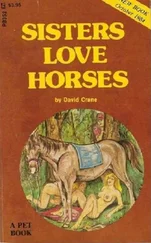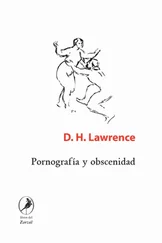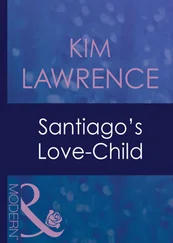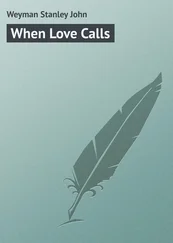David Lawrence - Women in Love
Здесь есть возможность читать онлайн «David Lawrence - Women in Love» весь текст электронной книги совершенно бесплатно (целиком полную версию без сокращений). В некоторых случаях можно слушать аудио, скачать через торрент в формате fb2 и присутствует краткое содержание. Год выпуска: 2003, Жанр: Классическая проза, Современные любовные романы, на английском языке. Описание произведения, (предисловие) а так же отзывы посетителей доступны на портале библиотеки ЛибКат.
- Название:Women in Love
- Автор:
- Жанр:
- Год:2003
- ISBN:нет данных
- Рейтинг книги:3 / 5. Голосов: 1
-
Избранное:Добавить в избранное
- Отзывы:
-
Ваша оценка:
- 60
- 1
- 2
- 3
- 4
- 5
Women in Love: краткое содержание, описание и аннотация
Предлагаем к чтению аннотацию, описание, краткое содержание или предисловие (зависит от того, что написал сам автор книги «Women in Love»). Если вы не нашли необходимую информацию о книге — напишите в комментариях, мы постараемся отыскать её.
Women in Love — читать онлайн бесплатно полную книгу (весь текст) целиком
Ниже представлен текст книги, разбитый по страницам. Система сохранения места последней прочитанной страницы, позволяет с удобством читать онлайн бесплатно книгу «Women in Love», без необходимости каждый раз заново искать на чём Вы остановились. Поставьте закладку, и сможете в любой момент перейти на страницу, на которой закончили чтение.
Интервал:
Закладка:
Gerald had penetrated all the outer places of Gudrun's soul. He was to her the most crucial instance of the existing world, the NE PLUS ULTRA of the world of man as it existed for her. In him she knew the world, and had done with it. Knowing him finally she was the Alexander seeking new worlds. But there WERE no new worlds, there were no more MEN, there were only creatures, little, ultimate CREATURES like Loerke. The world was finished now, for her. There was only the inner, individual darkness, sensation within the ego, the obscene religious mystery of ultimate reduction, the mystic frictional activities of diabolic reducing down, disintegrating the vital organic body of life.
All this Gudrun knew in her subconsciousness, not in her mind. She knew her next step-she knew what she should move on to, when she left Gerald. She was afraid of Gerald, that he might kill her. But she did not intend to be killed. A fine thread still united her to him. It should not be HER death which broke it. She had further to go, a further, slow exquisite experience to reap, unthinkable subtleties of sensation to know, before she was finished.
Of the last series of subtleties, Gerald was not capable. He could not touch the quick of her. But where his ruder blows could not penetrate, the fine, insinuating blade of Loerke's insect-like comprehension could. At least, it was time for her now to pass over to the other, the creature, the final craftsman. She knew that Loerke, in his innermost soul, was detached from everything, for him there was neither heaven nor earth nor hell. He admitted no allegiance, he gave no adherence anywhere. He was single and, by abstraction from the rest, absolute in himself.
Whereas in Gerald's soul there still lingered some attachment to the rest, to the whole. And this was his limitation. He was limited, BORNE, subject to his necessity, in the last issue, for goodness, for righteousness, for oneness with the ultimate purpose. That the ultimate purpose might be the perfect and subtle experience of the process of death, the will being kept unimpaired, that was not allowed in him. And this was his limitation.
There was a hovering triumph in Loerke, since Gudrun had denied her marriage with Gerald. The artist seemed to hover like a creature on the wing, waiting to settle. He did not approach Gudrun violently, he was never ill-timed. But carried on by a sure instinct in the complete darkness of his soul, he corresponded mystically with her, imperceptibly, but palpably.
For two days, he talked to her, continued the discussions of art, of life, in which they both found such pleasure. They praised the by-gone things, they took a sentimental, childish delight in the achieved perfections of the past. Particularly they liked the late eighteenth century, the period of Goethe and of Shelley, and Mozart.
They played with the past, and with the great figures of the past, a sort of little game of chess, or marionettes, all to please themselves. They had all the great men for their marionettes, and they two were the God of the show, working it all. As for the future, that they never mentioned except one laughed out some mocking dream of the destruction of the world by a ridiculous catastrophe of man's invention: a man invented such a perfect explosive that it blew the earth in two, and the two halves set off in different directions through space, to the dismay of the inhabitants: or else the people of the world divided into two halves, and each half decided IT was perfect and right, the other half was wrong and must be destroyed; so another end of the world. Or else, Loerke's dream of fear, the world went cold, and snow fell everywhere, and only white creatures, polar-bears, white foxes, and men like awful white snow-birds, persisted in ice cruelty.
Apart from these stories, they never talked of the future. They delighted most either in mocking imaginations of destruction, or in sentimental, fine marionette-shows of the past. It was a sentimental delight to reconstruct the world of Goethe at Weimar, or of Schiller and poverty and faithful love, or to see again Jean Jacques in his quakings, or Voltaire at Ferney, or Frederick the Great reading his own poetry.
They talked together for hours, of literature and sculpture and painting, amusing themselves with Flaxman and Blake and Fuseli, with tenderness, and with Feuerbach and Bocklin. It would take them a life-time, they felt to live again, IN PETTO, the lives of the great artists. But they preferred to stay in the eighteenth and the nineteenth centuries.
They talked in a mixture of languages. The ground-work was French, in either case. But he ended most of his sentences in a stumble of English and a conclusion of German, she skilfully wove herself to her end in whatever phrase came to her. She took a peculiar delight in this conversation. It was full of odd, fantastic expression, of double meanings, of evasions, of suggestive vagueness. It was a real physical pleasure to her to make this thread of conversation out of the different-coloured stands of three languages.
And all the while they two were hovering, hesitating round the flame of some invisible declaration. He wanted it, but was held back by some inevitable reluctance. She wanted it also, but she wanted to put it off, to put it off indefinitely, she still had some pity for Gerald, some connection with him. And the most fatal of all, she had the reminiscent sentimental compassion for herself in connection with him. Because of what HAD been, she felt herself held to him by immortal, invisible threads-because of what HAD been, because of his coming to her that first night, into her own house, in his extremity, because—
Gerald was gradually overcome with a revulsion of loathing for Loerke. He did not take the man seriously, he despised him merely, except as he felt in Gudrun's veins the influence of the little creature. It was this that drove Gerald wild, the feeling in Gudrun's veins of Loerke's presence, Loerke's being, flowing dominant through her.
'What makes you so smitten with that little vermin?' he asked, really puzzled. For he, man-like, could not see anything attractive or important AT ALL in Loerke. Gerald expected to find some handsomeness or nobleness, to account for a woman's subjection. But he saw none here, only an insect-like repulsiveness.
Gudrun flushed deeply. It was these attacks she would never forgive.
'What do you mean?' she replied. 'My God, what a mercy I am NOT married to you!'
Her voice of flouting and contempt scotched him. He was brought up short. But he recovered himself.
'Tell me, only tell me,' he reiterated in a dangerous narrowed voice—'tell me what it is that fascinates you in him.'
'I am not fascinated,' she said, with cold repelling innocence.
'Yes, you are. You are fascinated by that little dry snake, like a bird gaping ready to fall down its throat.'
She looked at him with black fury.
'I don't choose to be discussed by you,' she said.
'It doesn't matter whether you choose or not,' he replied, 'that doesn't alter the fact that you are ready to fall down and kiss the feet of that little insect. And I don't want to prevent you—do it, fall down and kiss his feet. But I want to know, what it is that fascinates you—what is it?'
She was silent, suffused with black rage.
'How DARE you come brow-beating me,' she cried, 'how dare you, you little squire, you bully. What right have you over me, do you think?'
His face was white and gleaming, she knew by the light in his eyes that she was in his power—the wolf. And because she was in his power, she hated him with a power that she wondered did not kill him. In her will she killed him as he stood, effaced him.
'It is not a question of right,' said Gerald, sitting down on a chair. She watched the change in his body. She saw his clenched, mechanical body moving there like an obsession. Her hatred of him was tinged with fatal contempt.
Читать дальшеИнтервал:
Закладка:
Похожие книги на «Women in Love»
Представляем Вашему вниманию похожие книги на «Women in Love» списком для выбора. Мы отобрали схожую по названию и смыслу литературу в надежде предоставить читателям больше вариантов отыскать новые, интересные, ещё непрочитанные произведения.
Обсуждение, отзывы о книге «Women in Love» и просто собственные мнения читателей. Оставьте ваши комментарии, напишите, что Вы думаете о произведении, его смысле или главных героях. Укажите что конкретно понравилось, а что нет, и почему Вы так считаете.











